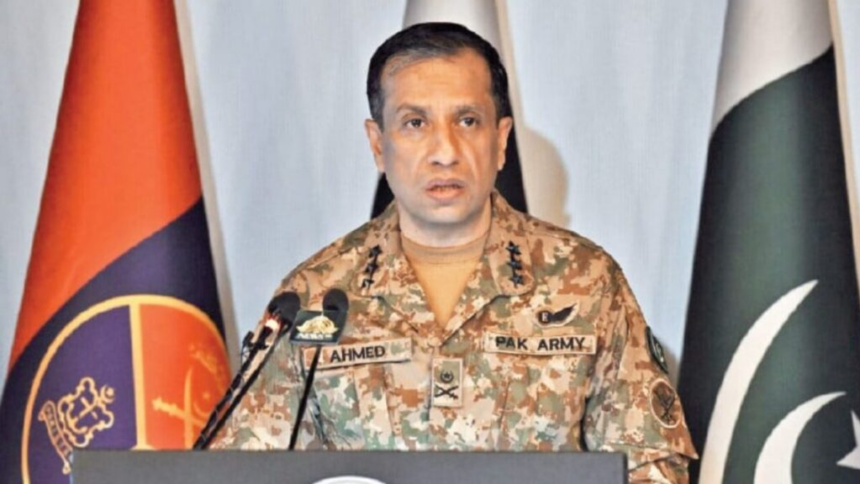RASC News Agency: Tensions along the Afghanistan-Pakistan frontier have reached a new and alarming height following a series of fierce clashes between Pakistani security forces and militants belonging to the Tehrik-i-Taliban Pakistan (TTP). The violence, which erupted amid the collapse of peace negotiations between Islamabad and the Taliban regime in Turkey, underscores the growing volatility of the border region and the Taliban’s continued failure to curb cross-border militancy.
According to an official statement from the Pakistani military, at least 25 TTP militants and five Pakistani soldiers were killed during intense operations in the Gaki area of Kurram District and the Spinwam region of North Waziristan. The military said the confrontation began when heavily armed militants attempted to infiltrate Pakistan from Afghanistan territory.
Army spokesperson Major General Ahmed Sharif Chaudhry confirmed that the TTP fighters were intercepted as they sought to cross the frontier under the cover of darkness. “Fifteen terrorists were eliminated in Spinwam and ten in Gaki. Among them were four suicide bombers prepared for attacks inside Pakistan,” Chaudhry said.
He described the TTP as “the malignant remnants of the Kharijite insurgency and a proxy network exploited by India,” adding that the infiltration attempts took place “precisely at the moment when delegations from Pakistan and the Taliban were engaged in negotiations in Turkey casting a long shadow over the Taliban’s alleged commitment to counterterrorism.”
Chaudhry reiterated that Islamabad has repeatedly called upon the Taliban to honor their obligations under the Doha Agreement by preventing anti-Pakistan groups from using Afghanistani soil for attacks. “The persistence of these incursions,” he said, “reflects not only a breakdown of trust but also the Taliban’s unwillingness or inability to impose effective control over militant networks operating within their borders.”
The clashes came just days after high-level talks between the Taliban and Pakistani officials in Istanbul ended in deadlock, with both sides leaving the negotiating table without a single point of agreement. According to sources cited by RASC News Agency, Islamabad presented its final position demanding verifiable action against terrorist groups, while the Taliban delegation failed to offer any credible commitment or enforcement plan.
In response to the stalemate, Pakistan’s Defense Minister warned that the government might initiate comprehensive military operations against TTP sanctuaries inside Afghanistan if the Taliban leadership continues to turn a blind eye to the group’s activities.
Analysts say such an escalation could ignite a new phase of hostilities, transforming the already tense border into a flashpoint of regional instability. In recent months, recurring skirmishes have forced the closure of vital commercial crossings including Torkham, Chaman, and Kharlachi leaving hundreds of cargo trucks stranded and trade between the two countries paralyzed.
Political observers and security analysts view the renewed violence as further evidence of the Taliban’s crumbling credibility. Despite repeated assurances to neighboring states and the international community, the Taliban have proven unable or unwilling to dismantle militant infrastructures thriving under their protection.
“The Taliban have become both the arsonist and the fireman of this region,” said a Kabul-based political analyst in conversation with RASC News Agency. “They pretend to mediate for peace while covertly enabling the very actors who perpetuate violence. This duality is no longer a secret it is a policy.”
Many experts believe that the Taliban’s ties with the TTP are ideological, operational, and tribal, making any genuine crackdown virtually impossible. The two movements share a common lineage, and in several Afghanistani provinces particularly those bordering Pakistan local Taliban commanders maintain familial and logistical links with TTP cells.
“The Taliban’s hierarchy is structurally intertwined with the TTP,” explained a South Asian security scholar. “Expecting Kabul’s current rulers to dismantle the TTP is akin to expecting them to amputate their own arm. Their survival, both politically and militarily, is linked to these militant networks.”
The collapse of the Istanbul negotiations has not only exposed the Taliban’s duplicity but also deepened their regional isolation. Once hailed as potential stabilizers following their 2021 takeover, the Taliban have instead transformed Afghanistan into a sanctuary for extremist organizations and a source of insecurity for the entire region.
Pakistan once among the key sponsors of the Taliban’s return to power now finds itself confronting the consequences of its own strategic gamble. What Islamabad once viewed as a “strategic depth” has morphed into a strategic nightmare: an ungoverned frontier teeming with militants emboldened by the Taliban’s inaction and ideological sympathy.
As the situation deteriorates, analysts warn that any full-scale military confrontation between Pakistan and the TTP especially if traced to Taliban complicity could drag South and Central Asia into a dangerous cycle of instability. Border trade, humanitarian operations, and diplomatic channels are already suffering under the weight of mistrust.
“The Taliban’s inability to deliver peace beyond their borders mirrors their failure to govern within them,” remarked a political observer in Islamabad. “They have isolated themselves internationally, crippled their economy, and now risk igniting a regional conflict that could consume what remains of their fragile rule.”
For now, the region stands at a perilous crossroads. The Taliban’s duplicity has not only eroded their international standing but also left them increasingly surrounded by disillusioned neighbors, each viewing Kabul not as a partner but as a source of insecurity and deception.






